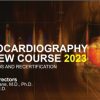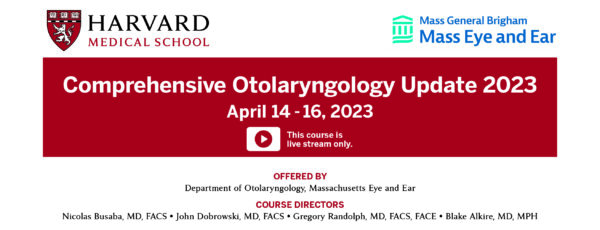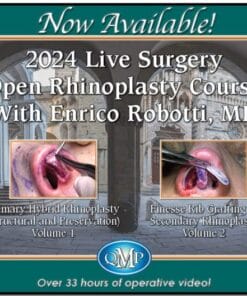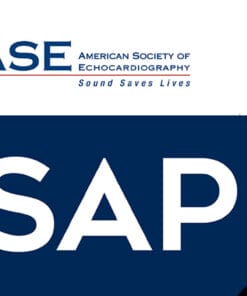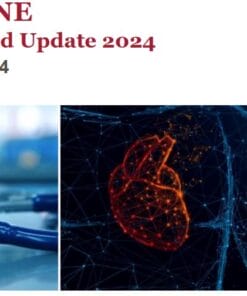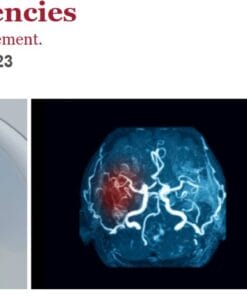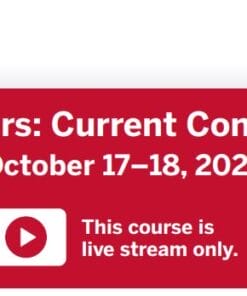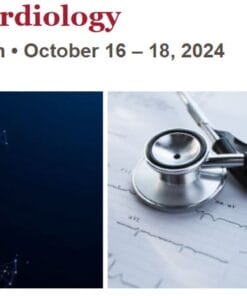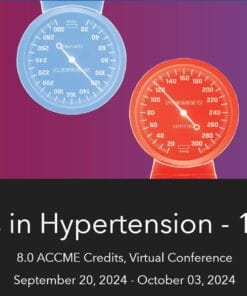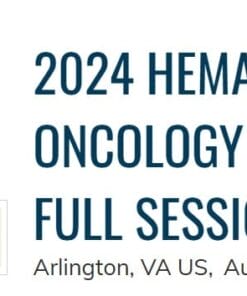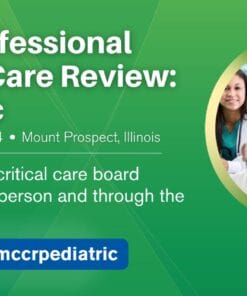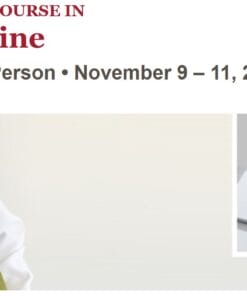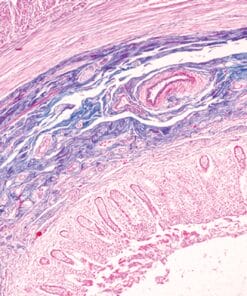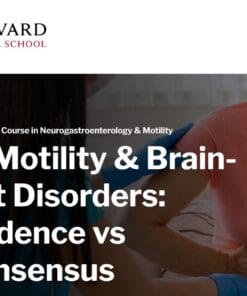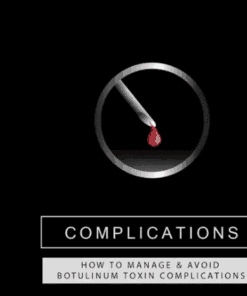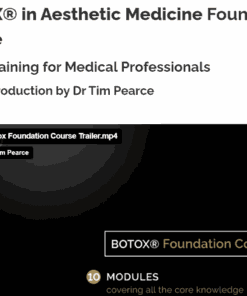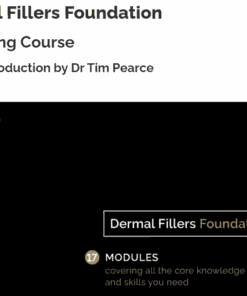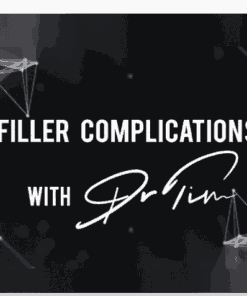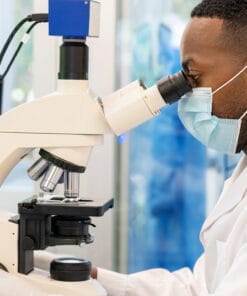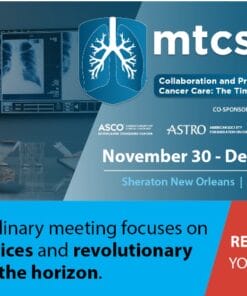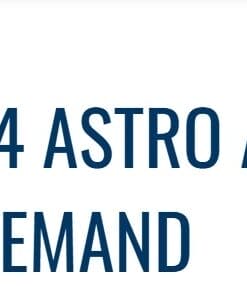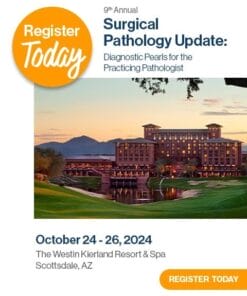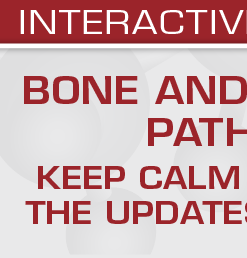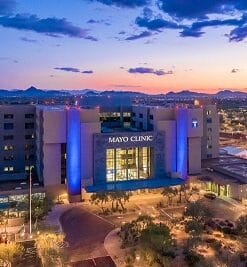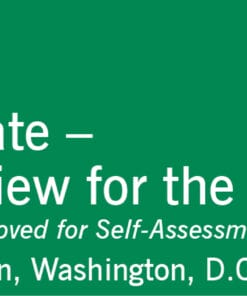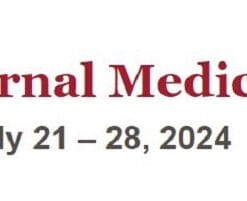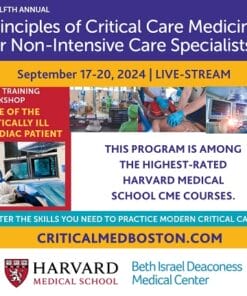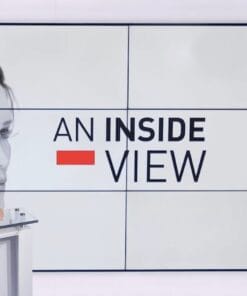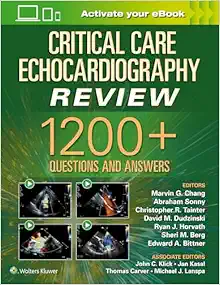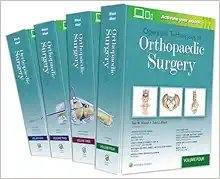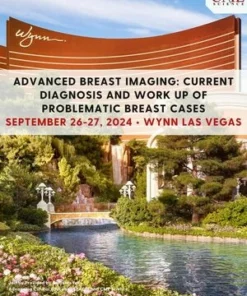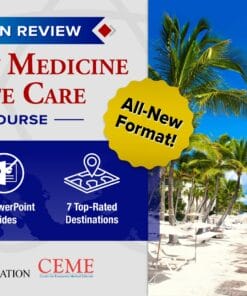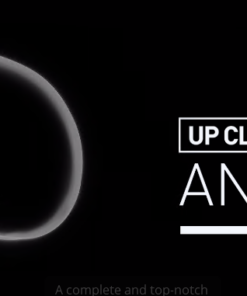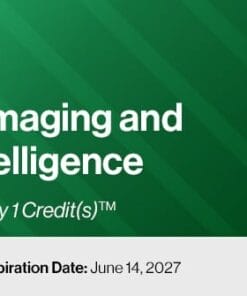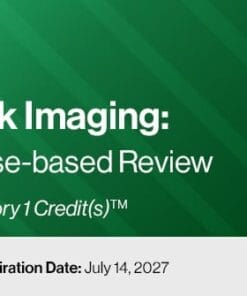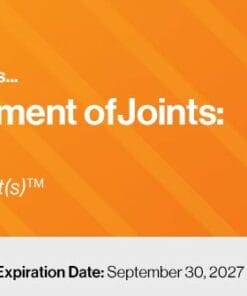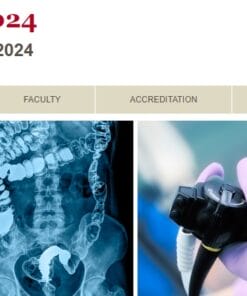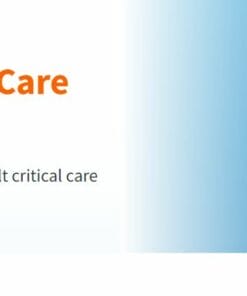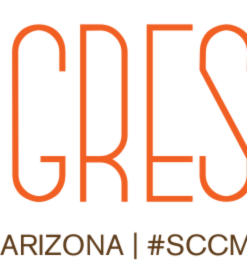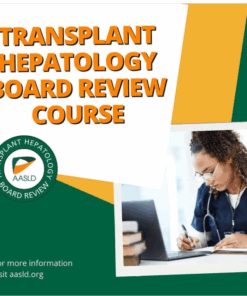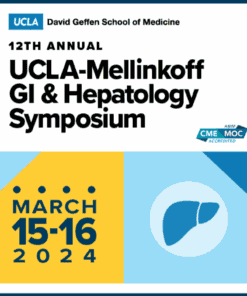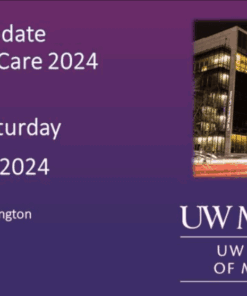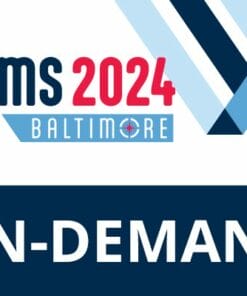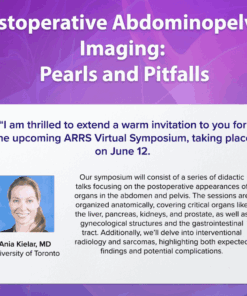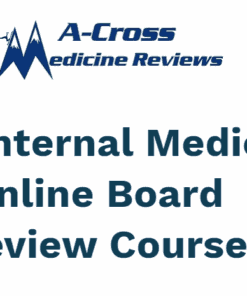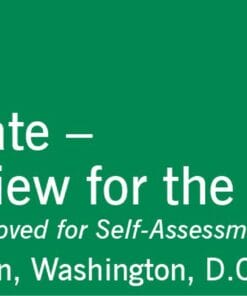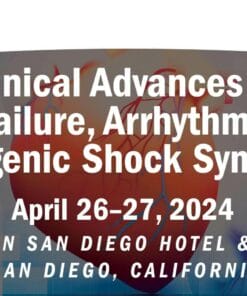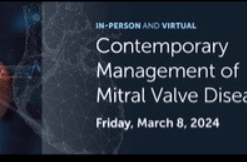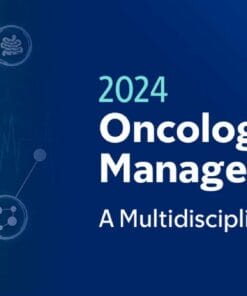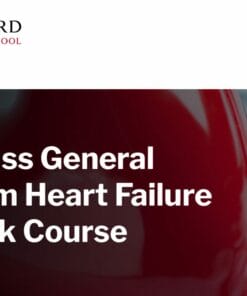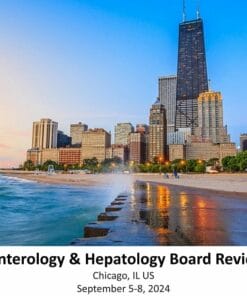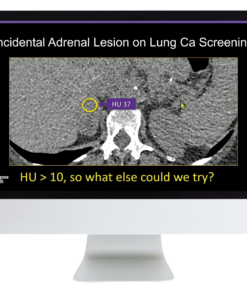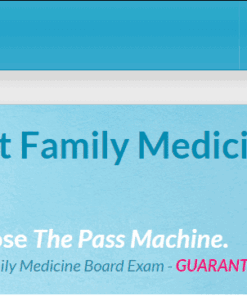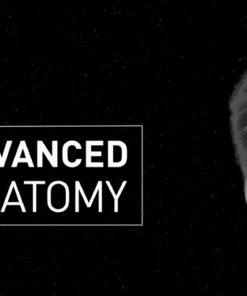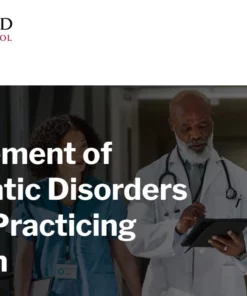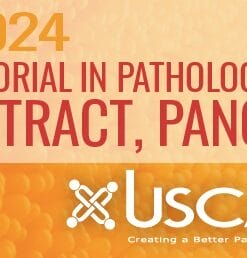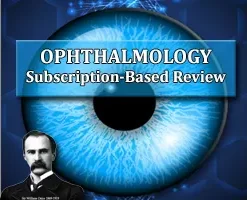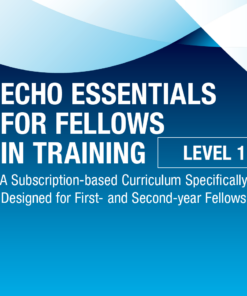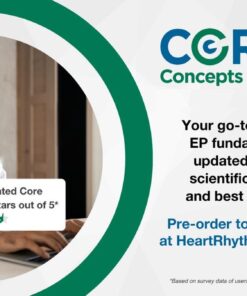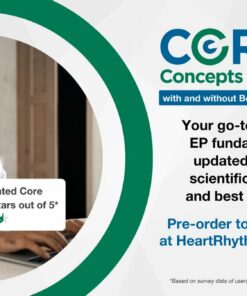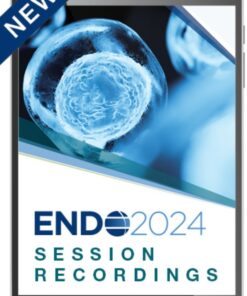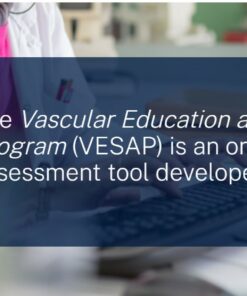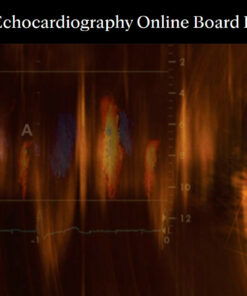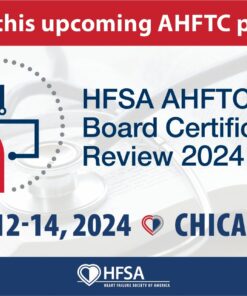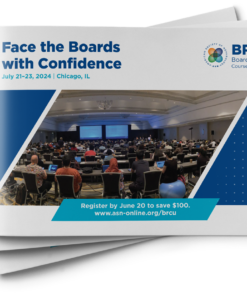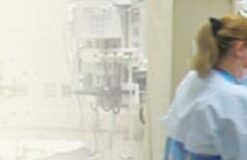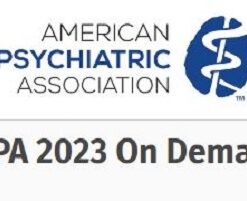Harvard Comprehensive Otolaryngology update 2023 (Course)
55 $
Harvard Comprehensive Otolaryngology.
Comprehensive Otolaryngology
Harvard Comprehensive Otolaryngology update 2023
Comprehensive Otolaryngology Update 2023
What you’ll learn
- In order to deliver effective and safe otolaryngologic care during the COVID-19 pandemic, healthcare professionals must adhere to strict policies and procedures. These may include screening patients for COVID-19 symptoms, utilizing personal protective equipment (PPE), implementing infection control measures, and adapting to changes in healthcare delivery such as telemedicine. By following these policies and procedures, healthcare providers can minimize the risk of COVID-19 transmission while providing quality care.
- Chronic rhinosinusitis is a condition characterized by inflammation of the nasal and sinus passages that lasts for at least 12 weeks. It can be further categorized into phenotypes and endotypes. Phenotypes refer to the clinical characteristics of the condition, such as the presence or absence of nasal polyps. Endotypes, on the other hand, refer to the underlying biological mechanisms that contribute to the development and persistence of the disease. For example, type 2 inflammation is a common endotype of chronic rhinosinusitis with nasal polyps.
- Biologics are a type of medication that target specific molecules involved in the immune response. In the treatment of chronic sinusitis with and without nasal polyps, biologics have shown promise in reducing inflammation and improving symptoms. For example, monoclonal antibodies that target interleukin-4 and interleukin-13, two molecules involved in type 2 inflammation, have been shown to improve symptoms and quality of life in patients with chronic rhinosinusitis with nasal polyps.
- Endoscopic sinus surgery is a minimally invasive surgical technique used to treat chronic sinusitis. During this procedure, a small camera is inserted into the nasal passages to guide the surgeon. Intra-operative image-guided navigation can enhance the accuracy and safety of the procedure. In addition, newer techniques such as balloon sinus dilation and drug-eluting stents can be used to open blocked sinus passages and deliver medication directly to the affected area. Understanding the surgical anatomy and utilizing these techniques and technologies can improve outcomes and reduce complications.
Learning Objectives
Upon completing this activity, participants will gain the following abilities:
- Recognize aerosol-generating procedures that are specific to otolaryngology practice, including those that may pose a risk of COVID-19 transmission.
- Demonstrate understanding of the policies and procedures required to deliver effective and safe otolaryngologic care during the COVID-19 pandemic, including measures to reduce the spread of infection among patients and staff.
- Apply knowledge of endotypes and phenotypes of chronic rhinosinusitis (CRS) with and without nasal polyposis to develop a tailored treatment plan and understand the role of biologics in its treatment.
- Interpret paranasal sinus imaging, identify surgical anatomy, and recognize anatomic variants that may increase the risk of operative complications during endoscopic sinus surgery.
- Understand the role of intra-operative navigation during endoscopic sinus surgery and select appropriate surgical tools and devices to improve outcomes.
- Recognize intra-operative complications during endoscopic sinus surgery and develop plans to handle them safely.
- Perform a comprehensive work-up of patients presenting with sleep-disordered breathing (SDB), order appropriate testing, and understand the role of drug-induced sleep endoscopy (DISE) in diagnosing the cause of SDB.
- Discuss surgical treatment options for patients with obstructive sleep apnea (OSA) based on the understanding of airway anatomy and areas of collapse, as determined by office examination and DISE.
- Develop a tailored upper airway surgical plan, recommend appropriate treatment, and select patients who are candidates for upper airway stimulation.
- Discuss the work-up of head and neck squamous cell carcinoma (HNSCC) with an unknown primary and recognize the role of positron emission tomography (PET) scan in its diagnosis and staging.
- Define the role of human papillomavirus (HPV) in HNSCC, including its impact on treatment choice and prognosis.
Schedule
Comprehensive Otolaryngology – Program Schedule 734717-2302
For more information and registration: https://cmecatalog.hms.harvard.edu/comprehensive-otolaryngology
FRIDAY, APRIL 14, 2023
Registration
8:00–8:20 am Welcome – Introduction Nicolas BuSaba, MD, FACS, Mark Varvares, MD, FACS,
Gregory Randolph, MD, FACS, FACE, John Dobrowski, MD, FACS
8:20–8:40 am Covid-19 and Aerosol Generating Procedures in the ENT Clinic. What is the Evidence? Benjamin Bleier, MD, FACS
8:40–9:00 am Surgical Anatomy of the Sinuses Neil Bhattacharyya, MD
9:00–9:20 am Sinus Imaging: How to Get the Most of Radiology Hillary Kelly, MD
9:20–9:40 am Epistaxis Management 2023 Alice Maxfield, MD
9:40–10:00 am Chronic Rhinosinusitis: Pathogenesis, Medical Management, and Role of Biologics George Scangas,MD
10:00–10:20 am Q&A Nicolas BuSaba, MD, FACS
10:20–10:40 am Morning Break
10:40–11:00 am Surgical Pearls for Frontal Sinus Surgery Alessandro Varini, MD
11:00–11:20 am Management of Benign Sinonasal Neoplasms Stacey Gray, MD
11:20–11:40 am ESS: Management of Intra-Operative Complications Ralph Metson, MD, FACS
11:40–12:00 pm Smell and Taste Dysfunction – Evaluation Eric Holbrook, MD
12:00–12:20 pm Q&A Nicolas BuSaba, MD, FACS
12:20–1:30 pm Lunch
1:30–2:30 pm Panel: Challenging Fess Cases
Moderator: Regan Bergmark
Panel: Stacey Gray, Eric Holbrook, George Scangas, Alessandro
Varini, Alice Maxfield
2:30–2:50 pm Otolaryngologist Work-Up of Sleep Disordered Breathing Noah Siegel, MD
2:50–3:10 pm Role of Nasal Surgery in OSAS Nicolas BuSaba, MD, FACS
3:10–3:30 pm Office Procedures to Treat Snoring John Dobrowski, MD, FACS
3:30–3:50 pm Q&A John Dobrowski, MD, FACS
3:50–4:30 pm Afternoon Break
4:30–4:50 pm Soft Palate Surgery for OSAS: UPPP and Various Surgical Modifications B Tucker Woodson, MD
4:50–5:10 pm Upper Airway Stimulation for OSAS: 2023 Update Phillip Huyett, MD
5:10–5:30 pm Functional Rhinoplasty and Nasal Valve Surgery: Surgical Tips to Improve Outcome Robin Lindsay, MD
5:30–5:50 pm Hair Transplant and PRP: Evidence-Based Essentials and Surgical Pearls Linda Lee, MD
5:50–6:10 pm Office Based Sialoendoscopy: When and How Rahmatullah “Wais” Rahmati, MD, MPH, FACS
6:10–6:20 pm Q&A John Dobrowski, MD, FACS
SATURDAY, APRIL 15, 2023
Registration
8:20–8:40 am Meniere’s Disease: An Update Matthew Crowson, MD
8:40–9:00 am Management of Idiopathic Sudden Sensorineural Hearing Loss Elliott Kozin, MD
9:00–9:20 am Stapedectomy: Technique and Surgical Pearls Alicia Quesnel, MD
9:20–9:40 am Chronic Otitis Media and Tympanomastoidectomy David Jung, MD
9:40–10:00 am Ossicular Reconstruction / Endoscopic Middle Ear Surgery Daniel Lee, MD, FACS
10:00–10:10 am Q&A John Dobrowski, MD, FACS
10:10–10:30 am Morning Break
10:30–10:50 am Avoiding Complications in Otologic Surgery D. Bradley Welling, MD, PhD, FACS
10:50–11:10 am Eustachian Tube Dilation: When and How Dennis Poe, MD, PhD
11:10–11:30 am Work-Up of The Dizzy Patient Steven Rauch, MD
11:30–11:40 am Q&A Nicolas BuSaba, MD, FACS
11:40–12:40 pm Panel: Challenging Cases:
Middle Ear And Mastoid Disease, And Auditory Rehabiliation
Moderator: Ronald Devenecia
Panel: Felipe Santos, David Jung, Dunia Abdul-Aziz, Alicia
Quesnel, Daniel Lee
12:40–2:00 pm Lunch
2:00–2:20 pm Pediatric Congenital and Genetic Hearing Loss Margaret Kenna, MD
2:20–2:40 pm Update On Pediatric Otitis Media and Eustachian Tube Dysfunction Leila Mankarious, MD
2:40–3:00 pm Evaluation and Management of Pediatric Neck Masses Andrew Scott, MD
3:00–3:20 pm Management of Pediatric Airway – An Update Gillian Diercks, MD, MPH
3:20–3:40 pm Pediatric Chronic Ear Disease – Role of Endoscopic Middle Ear Surgery Michael Cohen, MD
3:40–4:00 pm Peditric OSA Donald Keamy, MD
4:00–4:10 pm Q&A John Dobrowski, MD, FACS
4:10–4:30 pm Afternoon Break
4:30–4:50 pm Management of Benign Laryngeal Lesions Phillip Song, MD
4:50–5:10 pm Laryngology Office Procedures Ramon Franco, MD
5:10–5:30 pm Voice Evaluation / Videostroboscopy / Voice Therapy Glenn Bunting, MS, CCC-SLP
5:30–5:40 pm Q&A Nicolas BuSaba, MD, FACS
SUNDAY, APRIL 16, 2023
Registration
8:20–8:40 am Head And Neck Radiology – Role of PET In H+N Cancer – Thyroid Ultrasound MaryBeth Cunnane, MD
8:40–9:00 am Unknown Primary: Work-Up and Management Jeremy Richmon, MD
9:00–9:20 am Management of the Neck in Head and Neck Carcinoma Derrick Lin, MD, FACS
9:20–9:40 am Surgical Tips in Optimizing Surgical Outcome During Parotidectomy Daniel Deschler, MD, FACS
9:40–10:00 am Optimizing Margin Management in Oral Cancer Resections Mark Varvares, MD, FACS
10:00–10:10 am Q&A Greg Randolph, MD, FACS, FACE
10:10–10:30 am Morning Break
10:30–10:50 am Vocal Fold Paralysis: Work-Up and Management Matthew Naunheim, MD
10:50–11:10 am Head and Neck Melanoma Kevin Emerick, MD
11:10–11:30 am Skin Malignancy: Repair of Facial Defects David Shaye, MD, MPH, FACS
11:30–12:00 pm Q&A Greg Randolph, MD, FACS, FACE
12:00–1:00 pm Lunch
1:00–1:20 pm Management of Parathyroid Gland Disease – Hyperparathyroidism Leslie Eldeiry, MD
1:20–1:40 pm Work-Up and Management of Thyroid Nodule Paul Konowitz, MD
1:40–2:00 pm Thyroid Gland Surgery: Recurrent Laryngeal Nerve Monitoring and Surgical Pearls Greg Randolph, MD, FACS, FACE, Marika Russell, MD, FACS
2:00–2:20 pm Update on Papillary Thyroid Carcinoma Peter Sadow, MD, PhD
2:20–2:40 pm Q&A Greg Randolph, MD, FACS, FACE
Related Products
Video Medical



